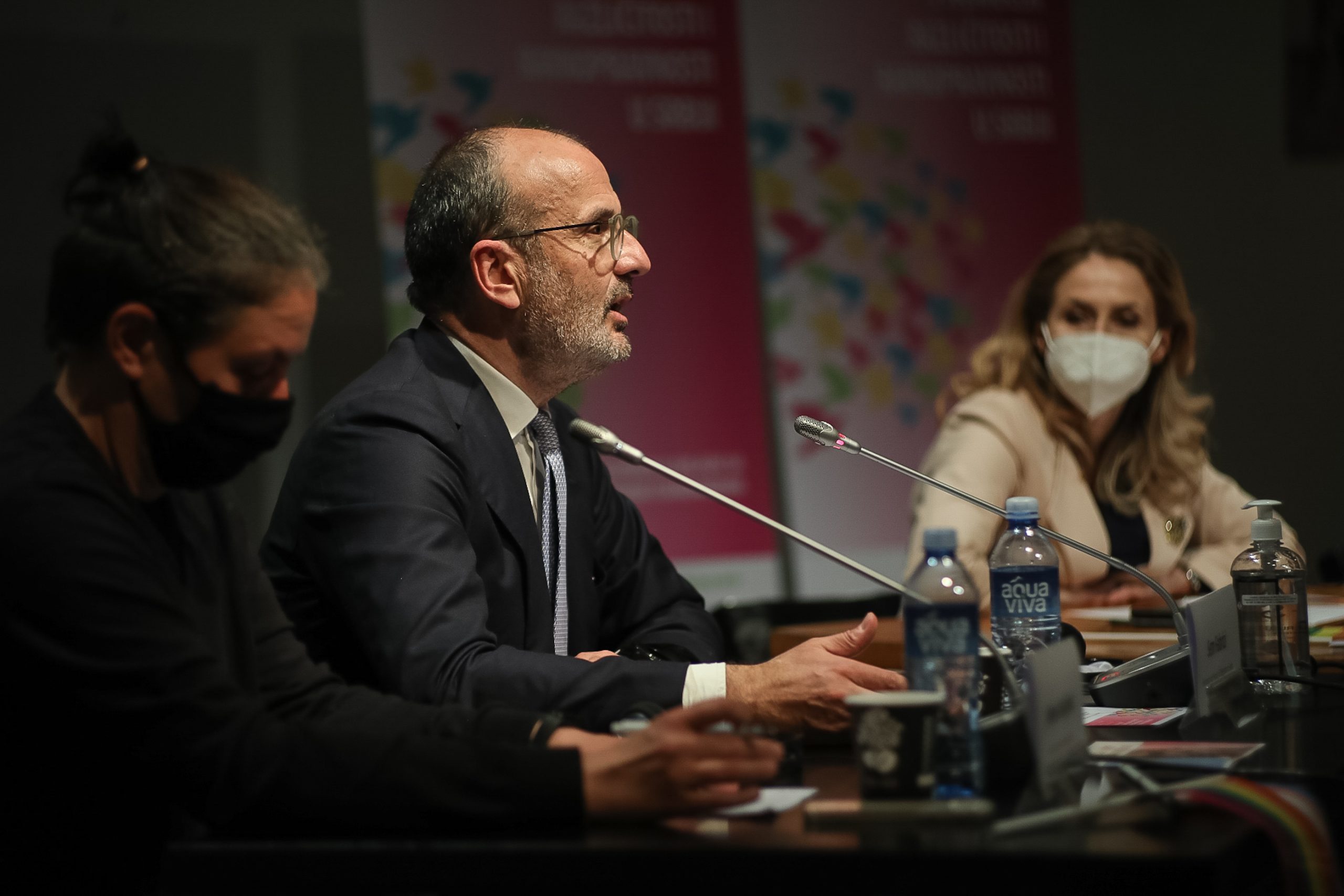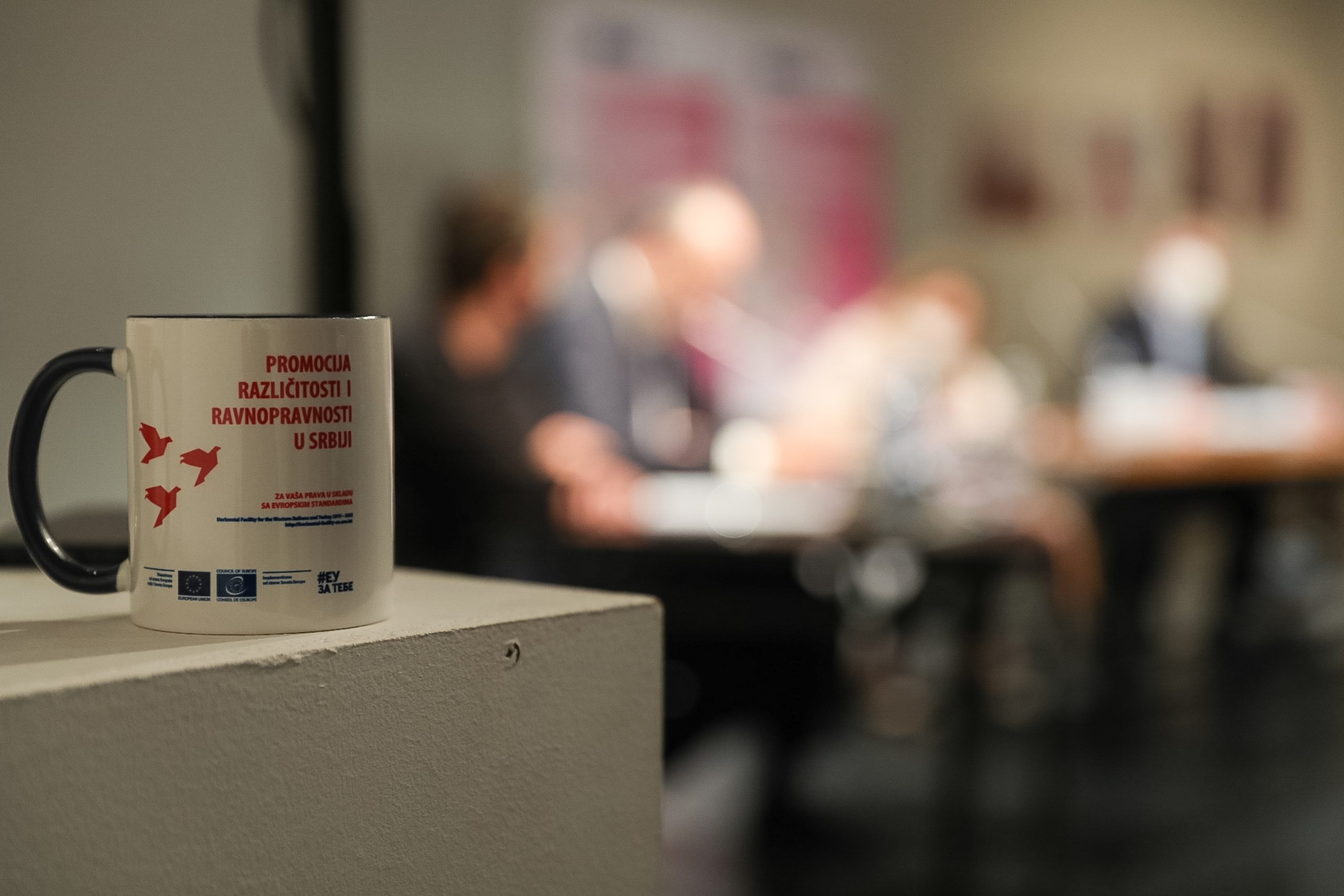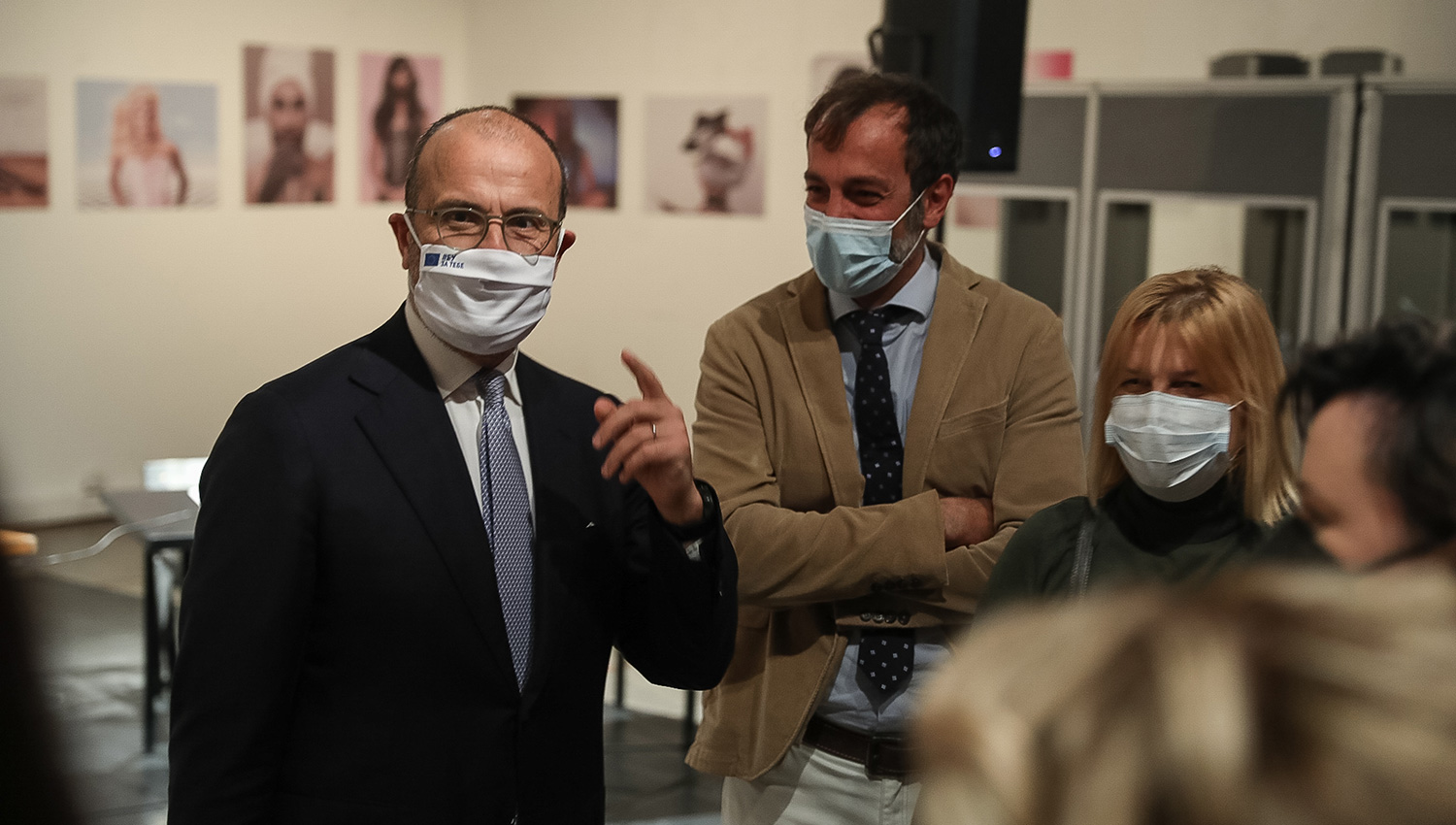Talking about the rights of LGBTI people does not mean talking about special rights, but about human rights for everyone, without discrimination. Despite progress achieved across Europe and in Serbia, some people still fear for their lives because of their sexual orientation or their gender identity.
This has been highlighted in the joint EU-CoE event organised on the occasion of the 17 May, the International Day Against Homophobia, Transphobia and Biphobia (IDAHOT) at the Centre for Cultural Decontamination. The event included panel discussion on how art can promote diversity, screening of short films on queer arts and intersex persons, photo exhibition on gender non-conformity prepared by NGO Group ‘’Come Out’’, as well as a performance by queer activist Aleks Zain.

Ambassador Sem Fabrizi, the Head of the EU Delegation to Serbia explained that the values embedded in the first ever LGBTIQ Equality Strategy 2020-2025 adopted by the EU in November 2020 will be reflected in the EU’s activities in Serbia. “According to the reports of the Equality Commissioner and the Protector of Citizens, LGBTIQ community is one of the groups most vulnerable to discrimination in Serbia”, noted ambassador Fabrizi. “However, Serbia is making progress in this area, and the European Commission will keep insisting on the political dialogue on LGBTIQ equality issues“, he said.
The event sought to shed light on the problems of marginalisation, persecution, discrimination and violence against LGBTI persons, to encourage dialogue, increase the visibility of queer people (LBTQ women identities in particular), and educate the public about important historical events that testify to deep-rooted homophobia and transphobia in the Serbian society.
“Those who discriminate are the ones to change, not the ones being discriminated”, said Tobias Flessenkemper, the Head of the Council of Europe Office in Belgrade in his opening remarks. “It takes no particular courage, but simple decency to stand up to discrimination,” he noted.

Brankica Janković, Commissioner for the Protection of Equality of Serbia, pointed out that the art does not recognise gender, nationality or religion and as such, it is a true advocate of change: “We should teach the new generations – also by using creative means – that we are all equal, but different, so that they would not twist their heads at the sight of unknown or different.”
Jelena Stojanović, Deputy Protector of Citizens of Serbia underlined that the institution of the Protector of Citizens has been working for years towards ensuring systemic support to the LGBTI persons. “However, the situation on the ground shows that a long path is still ahead of us in efforts to enable LGBTI people to enjoy their rights to the full extent”, she stated.
The event in Serbia is organised within the action “Promotion of diversity and equality in Serbia”, under the joint European Union/Council of Europe programme Horizontal Facility for the Western Balkans and Turkey 2019-2022.




